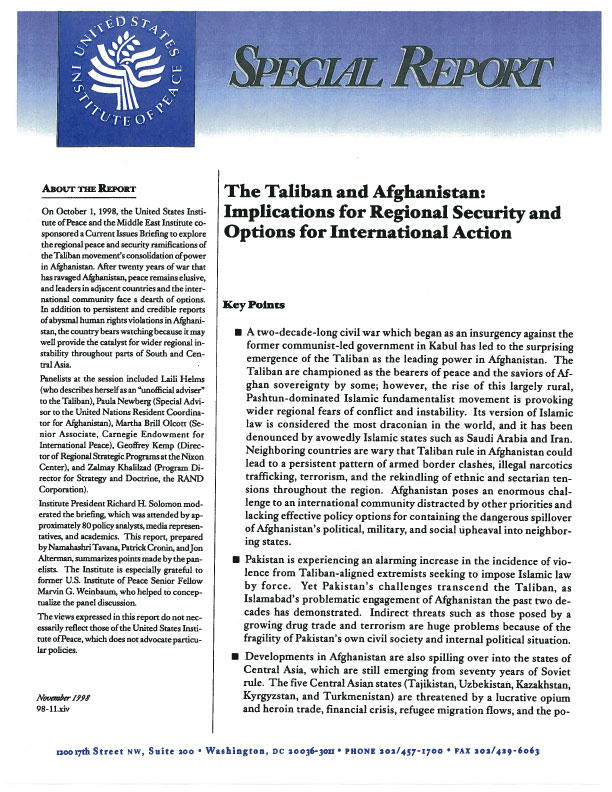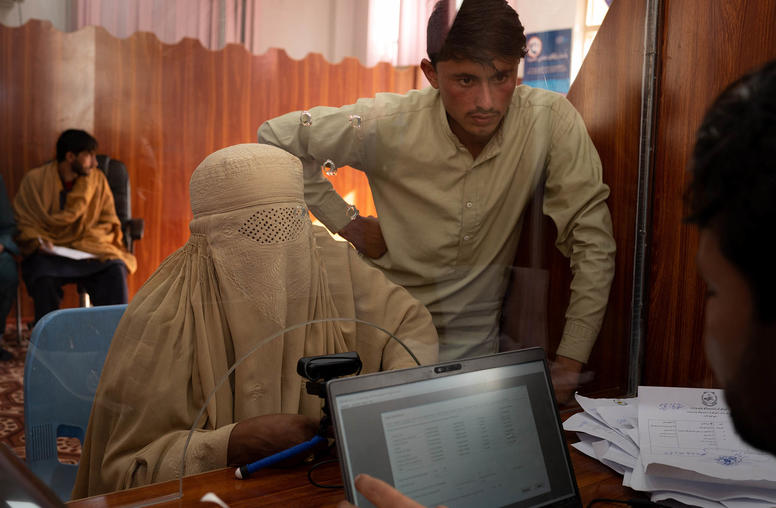The Taliban and Afghanistan: Implications for Regional Security and Options for International Action
The United States Institute of Peace and the Middle East Institute cosponsored a Current Issues Briefing to explore the regional and security ramifications of the Taliban movement's consolidation of power in Afghanistan. After twenty years of war that has ravaged Afghanistan, peace remains elusive, and leaders in adjacent countries and the international community face a dearth of options. In addition to persistent and credible reports of abysmal human rights violations in Afghanistan, the country bears watching because it may well provide the catalyst for wider regional instability throughout parts of South and Central Asia

About the Report
On October 1, 1998, the United States Institute of Peace and the Middle East Institute cosponsored a Current Issues Briefing to explore the regional and security ramifications of the Taliban movement's consolidation of power in Afghanistan. After twenty years of war that has ravaged Afghanistan, peace remains elusive, and leaders in adjacent countries and the international community face a dearth of options. In addition to persistent and credible reports of abysmal human rights violations in Afghanistan, the country bears watching because it may well provide the catalyst for wider regional instability throughout parts of South and Central Asia.
Institute President Richard H. Solomon moderated the briefing, which was attended by approximately eighty policy analysts, media representatives, and academics. This report, prepared by Namahashri Tavana, Patrick Cronin, and Jon Alterman, summarizes the points made by the panelists. The Institute is especially grateful to former U.S. Institute of Peace Senior Fellow Marvin Weinbaum, who helped to conceptualize the panel discussion.
The views expressed in this report do not necessarily reflect those of the United States Institute of Peace, which does not advocate specific policies.



